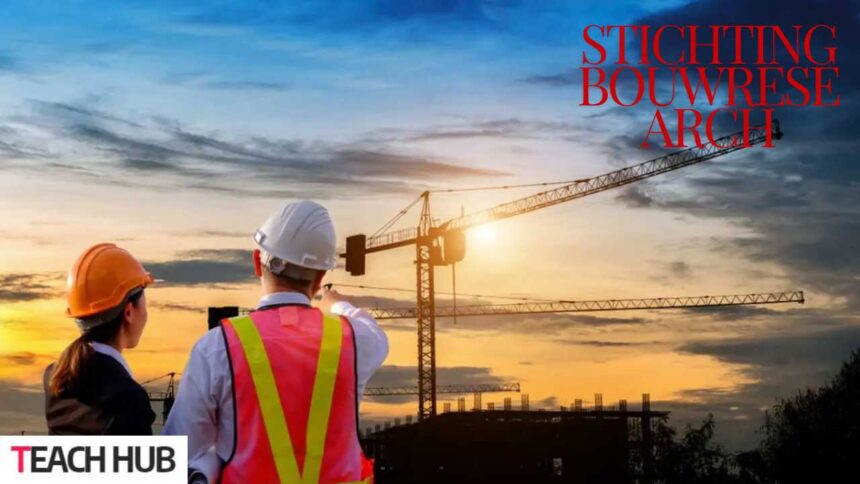Stichting Bouwresearch, the Construction Research Foundation, is a cornerstone of innovation and progress in the Dutch construction industry. Since its inception in the post-World War II era, this non-profit organization has been at the forefront of advancing building techniques, promoting sustainable practices, and fostering collaboration among industry professionals.
In this comprehensive guide, we’ll explore Stichting Bouwresearch’s history, mission, and significant contributions to the Dutch construction landscape.
The Origins and Evolution of Stichting Bouwresearch
Stichting Bouwresearch emerged in 1959 as a response to the pressing need for coordinated research and innovation in the Dutch construction sector. Following the devastation of World War II, the Netherlands faced the monumental task of rebuilding and modernizing its infrastructure.
Recognizing the importance of pooling knowledge and resources, industry leaders and government officials collaborated to establish an organization to drive progress in construction methods and technologies.
Under the leadership of its first chairman, former minister Herman Witte, Stichting Bouwresearch quickly became an invaluable resource for the Dutch construction industry. Initially based in Rotterdam, the organization relocated to Delft, positioning itself at the heart of the country’s technological innovation hub.
Over the decades, Stichting Bouwresearch has undergone several transformations to serve the industry’s evolving needs better. It was rebranded as SBR and later merged with CUR Civil Engineering Center to become SBRCURnet, further solidifying its position as a comprehensive center for construction knowledge and expertise.
Mission and Objectives of Stichting Bouwresearch
At its core, Stichting Bouwresearch is dedicated to advancing the construction industry through research, knowledge sharing, and fostering collaboration. The organization’s primary objectives include:
- Conducting high-quality, evidence-based research to address industry challenges
- Developing innovative solutions and technologies to improve construction efficiency, sustainability, and safety
- Promoting best practices and industry-leading standards
- Facilitating knowledge exchange among construction professionals, researchers, and policymakers
- Advocating for continuous improvement and modernization in the construction sector
By focusing on these objectives, Stichting Bouwresearch has positioned itself as a crucial player in shaping the future of Dutch construction expertise.
Key Contributions to Dutch Construction Knowledge
Stichting Bouwresearch has significantly contributed to the Dutch construction industry, elevating standards and practices across various domains. Some of the organization’s key areas of impact include:
Safety Regulations
Through thorough research and cooperation with industry stakeholders, Stichting Bouwresearch has been instrumental in developing and improving safety regulations for construction sites. These efforts have improved working conditions and reduced accident rates across the Netherlands.
Energy Efficiency Standards
As sustainability becomes increasingly important in construction, Stichting Bouwresearch has been at the forefront of developing energy efficiency benchmarks. Their research has contributed to implementing stricter building codes and adopting more environmentally friendly construction practices.
Innovative Building Techniques
Stichting Bouwresearch has introduced numerous innovative building techniques to the Dutch construction industry by staying ahead of technological advancements. From exploring the potential of 3D printing in construction to investigating robotics and automation, the organization continues to push the boundaries of what’s possible in modern construction.
Knowledge Dissemination
One of the most valuable contributions of Stichting’s Bouwresearch has been its role in disseminating knowledge throughout the industry. The organization ensures that the latest research findings and best practices reach professionals through publications, workshops, and collaborative projects.
Collaborations and Partnerships
Stichting Bouwresearch’s success can be attributed mainly to its extensive network of collaborations and partnerships. By fostering relationships with various stakeholders, the organization has created a robust innovation and knowledge exchange ecosystem.
Industry Professionals
Stichting Bouwresearch maintains close relationships with architects, engineers, construction companies, and other professionals in the field to ensure that its research is still applicable to current issues in the real world. This collaboration allows for the practical implementation of research findings and the continuous improvement of construction practices.
Academic Institutions
Partnerships with universities and research institutions enable Stichting Bouwresearch to tap into cutting-edge academic research and bridge the gap between theory and practice. These collaborations often result in groundbreaking studies that push the boundaries of construction science and technology.
Government Agencies
By working with government bodies, Stichting Bouwresearch plays a crucial role in shaping policies and regulations that govern the construction industry. This partnership ensures that legislation remains up-to-date with technological advancements and industry best practices.
International Organizations
Stichting Bouwresearch’s influence extends beyond the Netherlands through its collaborations with international organizations. These partnerships facilitate the exchange of knowledge and best practices on a global scale, positioning Dutch construction expertise at the forefront of international innovation.
Impact on the Dutch Construction Industry
The influence of Stichting’s Bouwresearch on the Dutch construction sector has been profound and far-reaching. Some of the critical areas where the organization has made a significant impact include:
- Elevating construction quality standards across the country
- Promoting sustainable and environmentally friendly building practices
- Enhancing safety measures and reducing workplace accidents
- Streamlining construction processes through innovative technologies
- Encouraging an industry-wide culture of ongoing learning and development
By consistently driving innovation and promoting best practices, Stichting Bouwresearch has played a crucial role in positioning the Dutch construction industry as a global leader in quality and sustainability.
Future Outlook and Opportunities
Stichting Bouwresearch is well-positioned to tackle future challenges and capitalize on emerging opportunities as the construction industry evolves. The following are some of the critical areas on which the organization is probably going to concentrate its efforts in the upcoming years:
Sustainable Construction
With increasing emphasis on environmental sustainability, Stichting Bouwresearch will likely intensify its research into green building materials, energy-efficient designs, and circular economy principles in construction.
Digital Transformation
As the industry embraces digital technologies, Stichting Bouwresearch is expected to lead research into Building Information Modeling (BIM), Internet of Things (IoT) applications in construction, and artificial intelligence in project management.
Climate Resilience
Given the growing concerns about climate change, the organization may focus on developing construction techniques and materials that enhance the resilience of buildings and infrastructure to extreme weather events.
Modular and Prefabricated Construction
To address housing shortages and improve construction efficiency, Stichting Bouwresearch may invest in research on advanced modular and prefabricated construction methods.
Workforce Development
As the industry faces skills shortages, the organization could play a crucial role in developing training programs and promoting construction careers to the next generation of professionals.
FAQs
What is the primary goal of Stichting’s Bouwresearch?
The main goal of Stichting’s Bouwresearch is to promote and facilitate research in innovative building techniques within the construction and building installation sectors, ultimately advancing the Dutch construction industry through knowledge sharing and collaboration.
When was Stichting Bouwresearch founded?
Stichting Bouwresearch was founded in 1959 to address the need for coordinated research and innovation in the Dutch construction sector after World War II.
How has Stichting Bouwresearch impacted the Dutch construction industry?
Stichting Bouwresearch has significantly impacted the Dutch construction industry by elevating quality standards, promoting sustainable practices, enhancing safety measures, streamlining construction processes, and fostering a culture of continuous learning and improvement.
What are some key research areas for Stichting Bouwresearch?
Key research areas for Stichting Bouwresearch include sustainable construction, energy efficiency, innovative building materials, safety regulations, digital technologies in construction, and climate-resilient infrastructure.
How can construction professionals get involved with Stichting Bouwresearch?
Construction professionals can get involved with Stichting Bouwresearch by participating in research projects, attending events and workshops, subscribing to publications, becoming members, or exploring funding and sponsorship opportunities.
Conclusion
For more than 60 years, Stichting Bouwresearch has been a driving force in the Dutch construction sector, constantly pushing the envelope regarding innovation and quality.
Through its commitment to research, collaboration, and knowledge sharing, the organization has played a pivotal role in shaping the Netherlands’ reputation as a leader in construction expertise.
As the industry faces new challenges and opportunities, Stichting Bouwresearch remains well-positioned to guide the sector toward a sustainable, efficient, and innovative future.



